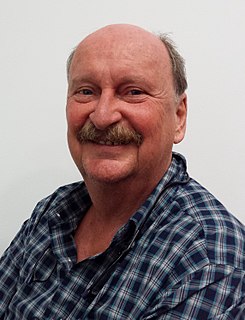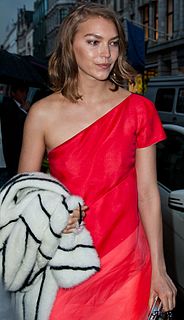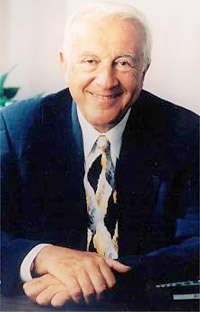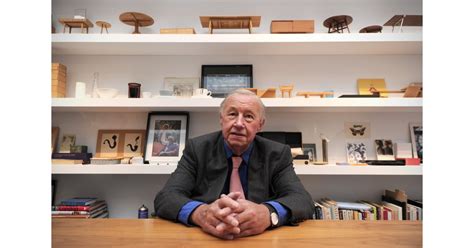A Quote by Richard Dawkins
Either it is true that a medicine works or it isn't. It cannot be false in the ordinary sense but true in some alternative sense. If a therapy or treatment is anything more than a placebo, properly conducted double-blind trials, statistically analyzed, will eventually bring it through with flying colours. Many candidates for recognition as orthodox medicines fail the test and are summarily dropped. The alternative label should not (though, alas, it does) provide immunity from the same fate.
Quote Topics
Alas
Alternative
Anything
Blind
Bring
Candidates
Cannot
Colours
Does
Double
Dropped
Either
Eventually
Fail
False
Fate
Flying
Immunity
Label
Many
Medicine
Medicines
More
Ordinary
Orthodox
Placebo
Properly
Provide
Recognition
Same
Sense
Should
Some
Test
Than
Therapy
Though
Through
Treatment
Trials
True
Will
Works
Related Quotes
It is time for the scientific community to stop giving alternative medicine a free ride There cannot be two kinds of medicine — conventional and alternative. There is only medicine that has been adequately tested and medicine that has not, medicine that works and medicine that may or may not work. Once a treatment has been tested rigorously, it no longer matters whether it was considered alternative at the outset. If it is found to be reasonably safe and effective, it will be accepted.
We should listen less to the opinions of those who either overtly promote or stubbornly reject complementary and alternative medicine without acceptable evidence. The many patients who use complementary and alternative medicine deserve better. Patients and healthcare providers need to know which forms are safe and effective. Its future should (and hopefully will) be determined by unbiased scientific evaluation.
Intuitionists think that there are cases in which, say, some identity statement between real numbers is neither true nor false, even though we know that it cannot possibly be false. That is: We know that it cannot not be that a = b, say, but we cannot conclude that a = b. We can't, in general, move from not-not-p to p in intuitionistic logic. , I suggest that the believer in vague objects should say something similar. It can never be true that it is vague whether A is B. But that does not imply that there is always a fact of the matter whether A is B.
Either Christianity is true or it's false. If you bet that it's true, and you believe in God and submit to Him, then if it IS true, you've gained God, heaven, and everything else. If it's false, you've lost nothing, but you've had a good life marked by peace and the illusion that ultimately, everything makes sense. If you bet that Christianity is not true, and it's false, you've lost nothing. But if you bet that it's false, and it turns out to be true, you've lost everything and you get to spend eternity in hell.
[Buddhism and Christianity] are in one sense parallel and equal; as a mound and a hollow, as a valley and a hill. There is a sense in which that sublime despair is the only alternative to that divine audacity. It is even true that the truly spiritual and intellectual man sees it as sort of dilemma; a very hard and terrible choice. There is little else on earth that can compare with these for completeness. And he who does not climb the mountain of Christ does indeed fall into the abyss of Buddha.
Don't lies eventually lead to the truth? And don't all my stories, true or false, tend toward the same conclusion? Don't they all have the same meaning? So what does it matter whether they are true or false if, in both cases, they are significant of what I have been and what I am? Sometimes it is easier to see clearly into the liar than into the man who tells the truth. Truth, like light, blinds. Falsehood, on the contrary, is a beautiful twilight that enhances every object.
It is true that some off-label drug use is based on very unsettled science and has more risks. But medicine - and not just cancer care - involves lots of hard choices. And the more serious the disorder, often the more likely it is that for every right and wrong treatment choice there are many other practical decisions painted in shades of gray.
There is no better example of the weakness of our dominant medicine than its clearly ineffective War On Cancer. By the same token, there is no better example of the superiority of complementary, alternative medicine than its management of this dread disease. We are equally concerned about whether mainstream medicine's demand for proof works to maintain it at its current level of ineptitude.
All religions, plainly and simply, cannot be true. Some beliefs are false, and we know them to be false. So it does no good to put a halo on the notion of tolerance as if everything could be equally true. To deem all beliefs equally true is sheer nonsense for the simple reason that to deny that statement would also, then, be true. But if the denial of the statement is also true, then all religions are not true.
Superficial to understand the journal as just a receptable for one's private, secret thoughts - like a confidante who is deaf, dumb, and illiterate. In the journal I do not just express myself more openly than I could to any person; I create myself. ... The journal is a vehicle for my sense of selfhood. It represents me as emotionally and spiritually independent. Therefore (alas) it does not simply record my actual, daily life but rather - in many cases - offers an alternative to it.
Homoeopathic treatment is my first choice not only for me but also for my family. Homoeopathy should be developed as full- fledged alternative system of medicine. More research and more development are essential to make Homoeopathy more popular and useful Homoeopath treats their patients in more compassionate way. Homoeopathy is second largest system of medicine being practiced in India.


































